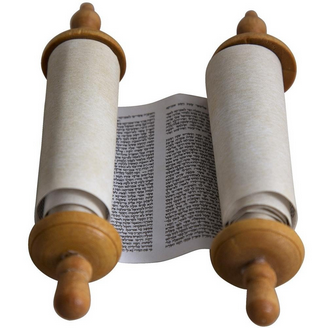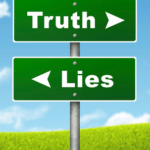The preaching of the gospel signifies the coming of God’s kingdom. Healings, miracles, and casting out demons should regularly accompany this proclamation of freedom from Satan’s dominion.
"These signs will accompany those who have believed: in My name they will cast out demons, they will speak with new tongues; 18 they will pick up serpents, and if they drink any deadly poison, it will not hurt them; they will lay hands on the sick, and they will recover." Mark 16:17-18 (NASB)
The purpose of this teaching is to equip the hearer to become knowledgeable and confident to step out in faith with reliance upon the Spirit of God to set people free from demonic oppression. God loves to use ordinary people who believe his promises, rely on his Spirit, and step out in faith. Ordinary people like us can do extraordinary things. Casting out demons is not a quick fix. Rather it is usually part of a more comprehensive process of helping people escape bondage. We don’t want to be guilty of having only one tool in our bag, say a hammer, and seeing every problem as a nail.
What is a demon?
Scripture is not clear on this matter. Some hold that they are fallen angels; while others believe they are some other malevolent creatures, who for some reason crave to inhabit and oppress humans. Probably they wish to have a bodily means of expressing their evil in the world, or it may simply be that they wish to mar the crown of God’s creation. Regardless of their origin, demons have power to oppress or demonize people, and Jesus came to set us free from their influence. In addition, our Lord delegated authority to his followers to do the same.
When Jesus rose from the dead, Satan and all in his kingdom suffered a complete defeat.
Being found in appearance as a man, He humbled Himself by becoming obedient to the point of death, even death on a cross. 9 For this reason also, God highly exalted Him, and bestowed on Him the name which is above every name, 10 so that at the name of Jesus every knee will bow, of those who are in heaven and on earth and under the earth, 11 and that every tongue will confess that Jesus Christ is Lord, to the glory of God the Father. Philippians 2:8–11 (NASB95) —
Christ’s resurrection sealed the destruction of the kingdom of darkness and introduced the reign of God.
When we respond to the gospel, Father God transfer’s us from Satan’s rule into Jesus’ glorious kingdom.
For He rescued us from the domain of darkness, and transferred us to the kingdom of His beloved Son, Colossians 1:13 (NASB95) —
What is demonization?
Unfortunately, most Bible translations incorrectly describe demonic activity as “possession,” implying ownership and complete control over us. The Scriptures call it “demonization,” which can come in varying degrees. Let’s look at an example.
When evening came, after the sun had set, they began bringing to Him all who were ill and those who were demon-possessed (Greek: daimonizomai = English: demonized). Mark 1:32 (NASB95)
What a difference it would make in our thinking if this had been translated like this.
When evening came, after the sun had set, they began bringing to Him all who were ill and those who were oppressed or harassed by demons (demonized).
Oppression communicates something very different from possession. Some who oppose the idea that a Christian can “have” a demon correctly argue that those who belong to Christ cannot be possessed or owned by an evil spirit since we belong to God. However, this does not preclude a Christian’s being oppressed by a demon, which happens quite often.
Demons oppress people in a variety of ways, using fear, intimidation, and deception. Below are the names given to these spirits in the Bible.
- Demon (daimonion) – Matthew 7:22. This is the general term.
- Evil Spirit (pneuma poneros) – Matthew 12:45. This is also a general term. All demons are evil. This goes for ghosts, poltergeists, etc. There is no Casper the friendly ghost. Don’t be deceived by the current fad of ghost busting. To learn more about this, consider reading Seeing Ghosts through God’s Eyes by Mark Hunnemann.
- Unclean Spirit (pneuma akathartos) – Matthew 10:1. This is another general term, but one we in the West do not often use. The opposite of clean or holy is unclean or defiled. Unclean spirits defile what they touch. Jesus, the Clean One, cleanses unclean people with a touch. Part of his ministry was and is to drive out spirits of uncleanness. I think that sexual perversion can be demonic and defiles us.
- Spirit of Infirmity, Weakness, or Sickness (pneuma astheneia) – Luke 13:11. Some sicknesses and diseases are caused by evil spirits. We must discern whether we are dealing with a “simple” sickness or one that is demonically induced. One requires healing. The other, deliverance.
- Spirit of Fear, Timidity, or Cowardice (pneuma deilia) – 2 Timothy 1:7. Some spirits inspire fear in those they oppress. Spirits can only minister to others who they are and what they have. Perfect love (Jesus) drives out all fear.
- Spirit of Python, Fortune Telling, Divination (pneuma puthon) – Acts 16:16. Evil spirits inspire false prophecy and other forms of divination (knowing things by means of an evil source). This is one reason why we must steer clear of demonically inspired sources of information, which include Ouija boards, fortune telling tarot cards, astrology, etc.. Satan always desires to bring people into bondage through false knowledge. He will reveal just enough truth to hook people, but his ultimate desire is to enslave and destroy us by means of clever lies.
- Spirit of Slavery (pneuma douleia) – Romans 8:15. This spirit keeps people in bondage, often through fear and intimidation. Addictions may be at least partly caused by such a spirit. I believe these spirits are also at work in false religions and legalism.
- Spirit of Antichrist (pneuma antichristos) – 1 John 4:3. This is the spirit behind false worship and false messiahs. It denies Christ and inspires others to do the same.
- Spirit of Stupor (pneuma katanuxis) – Romans 11:8. This spirit seeks to dull people’s ability to hear and respond to God and the Gospel. When people start nodding off when anything spiritual is happening, it might be because of this spirit. Of course, they might be suffering from a lack of sleep, too.
- Lying Spirit (ruach sheqer) – 2 Chronicles 18:22. This spirit works to keep people deceived. Some people are motivated by this spirit to lie. Others are lied to by this spirit. In the biblical example cited, lying spirits inspired false prophets to lie to the king to induce him to take a course of action that would result in his death. Today perhaps the legacy media is the closest parallel.
What evil spirits do according to the Bible.
- Afflict – to apply pressure,
- Harass – to distress or trouble,
- Dispirit – to throw down,
- Oppress – to exercise power over,
- Torment – to make a person hurt himself and cry out,
- Inflict physical problems – such as sickness, deafness, blindness, muteness, seizures,
- Try to destroy – such as throw someone into a fire,
- Make insane – such as the Gerasene demoniac,
- Defile – Unclean spirits afflict with impurity, sexual or otherwise,
- Terrify – to fall upon, startle, inspire fear (Saul).
How do people become demonized?
I do not believe that demons are behind our every sin or problem. The greatest culprit we face is our own inborn propensity to sin, which the Bible calls the “flesh.” Paul advised us to…
… lay aside the old self, which is being corrupted in accordance with the lusts of deceit, 23 and that you be renewed in the spirit of your mind, 24 and put on the new self, which in the likeness of God has been created in righteousness and holiness of the truth. Ephesians 4:22–24 (NASB95) —
Even though our “flesh” should be our first suspect when we have a recurring problem, demons may be more prevalent than we think. They seek to take advantage of “open doors” in our lives to harass and oppress us.
Thankfully, they cannot oppress us at will if they have not been given access to do so.
Like a sparrow in its flitting, like a swallow in its flying,
So a curse without cause does not alight. Proverbs 26:2 (NASB95) —
We do not have to be worried about some demon “jumping on us,” nor do we have to be concerned that, if we touch a demonized person, the demon can transfer to us. Jesus often laid his hands on demonized people as part of the deliverance process.
And He was teaching in one of the synagogues on the Sabbath. 11 And there was a woman who for eighteen years had had a sickness caused by a spirit; and she was bent double, and could not straighten up at all. 12 When Jesus saw her, He called her over and said to her, “Woman, you are freed from your sickness.” 13 And He laid His hands on her; and immediately she was made erect again and began glorifying God. Luke 13:10–13 (NASB95) —
In general, demons are attracted to some sort of “nest” of pain or lies or a “hook” created by some habitual or gateway sin by which to gain traction in our lives. Demons may gain access, it appears, in several ways. Here is a partial list.
- When we give ourselves over to habitual sin, particularly bitterness, which opens our soul to whatever spirit or spirits may wish to “set up shop” in that area of sinfulness,
- Sexual sin with a demonized partner,
- If we participate in the occult in some way, even if it is done ignorantly,
- If we are traumatized, especially when we are young, and we turn to someone or something other than God to help us,
- If we give ourselves over to believing lies about God which contradict his character or the scriptures,
- Through abuse, especially sexual abuse, especially when the abuse is done by someone who should be our protector, and
- By the passing down of generational or family (familiar) spirits, such as when witchcraft is passed down from a parent or grandparent to a child.
- Lately more demonic movies and TV shows are being aired. It is quite possible, I believe, for people who are watching these shows to open their hearts and minds to the demonic. It is akin to dabbling in the occult.
- By opening our souls to evil through the use of drugs and mind altering chemicals.
Demons do not play fair and will take advantage of any opportunity or opening to oppress people, whether we sin intentionally or naively, as in occult involvement, or whether we commit sin or sin is committed against us, as in abuse. Parents, who are supposed to be protectors of their children, can open the door for their children to be demonized by bringing the occult, etc. into their homes.
Lastly, demons can even be sent by God to torment us if we refuse to forgive others.
“Then summoning him, his lord said to him, ‘You wicked slave, I forgave you all that debt because you pleaded with me. 33 ‘Should you not also have had mercy on your fellow slave, in the same way that I had mercy on you?’ 34 “And his lord, moved with anger, handed him over to the torturers until he should repay all that was owed him. 35 “My heavenly Father will also do the same to you, if each of you does not forgive his brother from your heart.” Matthew 18:32–35 (NASB95) —
How do we identify demons?
If we believe that demons exist, that they were defeated by our Lord, and that we have authority over them, how do we know when we are dealing with one? That is less straightforward except for those times when they clearly manifest their presence.
Generally, demons seek to remain undetected. Therefore, the first step is to identify the problem.
They want us to assume that the oppression we experience at their hands is of our own making. For example, if we are being bombarded with lustful thoughts from an unclean spirit, it wants us to think these thoughts are all from our own mind. If we do not know a demon is at work, we will not take steps to get rid of it.
Demons try to distract from God and his work. We must never allow them to become the main event or attraction. Rather, we should see them as a sideshow. The underlying problem(s) that gave demons access is (are) the main issue that needs to be addressed and resolved.
Some believe that we should always suspect a demon when a person has a recurrent or difficult problem with sin or addiction. I believe our problems are usually more complicated than that. When helping someone get free from devastating problems, I address their bondage by looking at obvious sin, especially bitterness, generational problems passed down through their family, lies believed, unhealed traumatic pain, and lastly, demons. We all have what the Bible calls the “flesh,” our inborn propensity to sin. The “flesh” never reforms or goes away; although, it does not have the power to rule us after we are born again. However, we can give in to it if we choose. I begin with delving into these various areas of bondage, understanding that I may encounter a demon along the way. I trust the Holy Spirit to reveal if one is there. Often removing the ”nest” gets rid of the demon.
When we allow Jesus to liberate and heal us in these areas and uncover demons, they are easily removed. Deliverance is the easiest part of helping people experience their freedom in Christ.
When healing people, about half the time Jesus simply spoke words of healing, and the rest of the time he identified the problem as having a demonic origin. Our Lord was able to discern the difference, and so must we.
It can be harmful and confusing if we try to cast out a demon that is not present.
Nothing will happen, leaving either us or the person receiving ministry confused. It may be decided that Jesus does not have the desire to help us or that the minister is powerless. The flesh cannot be cast out.
The Holy Spirit gives us the ability to discern the presence or work of a demon (1 Corinthians 12:10), but it takes experience and faith to become proficient at it.
The gift of discerning of spirits is many-faceted. I know a person who told me that she can “smell” them. Others “see” them with spiritual discernment. Many detect their presence intuitively. Others “figure out” that they are the problem by analyzing the symptoms. Occasionally demons manifest in some obvious way. Each minister must figure out how God works through him or her. Personally, I must rely heavily on the Spirit of God since I cannot figure this stuff out on my own. I find this is the safest and most effective way to minister to people.
If we are convinced that the Holy Spirit will help us as we minister in Christ’s name and authority, it will enable us to step out in faith.
I sometimes resort to commanding a suspected demon to manifest in a “controlled” way. I may pray something like this: “Evil spirit, if you are there, I command you to manifest in a way that Jesus allows and will not hinder or distract us in any way but will reveal your presence.” Once I suspected a young woman who was addicted to cigarettes may have been suffering from demonization. With her permission, I commanded any demon operating in her to manifest. She immediately had a vile taste in her mouth. I commanded the spirit to leave, and she was released from her addiction.
On a humorous side, once while ministering to a man, after we prayed, he heard a voice inside him say, “I am not going to leave either.” We both burst into laughter, realizing that a demon just revealed its presence. We immediately cast it out.
How can we be set free?
Once we identify any demons and help the demonized person to repent and renounce whatever gave them entrance, it is an easy matter to dispose of them. Helping people to be set free from demons is best done in active cooperation with the Holy Spirit. Jesus said that he cast out spirits by the “finger of God,” meaning the Holy Spirit, and so must we.
Forgiveness
Often the first step to being freed from bondage, including demonic oppression, is to forgive. Never try to go forward in a deliverance process until the person who desires freedom has released all bitterness.
Unforgiveness is the Christian’s archenemy.
Generational Devastation – Lies – Unhealed Traumatic Pain
With the Holy Spirit’s help, we can uncover the presence of generational devastation, lie-based strongholds, and unhealed traumatic wounds. This usually takes time, sometimes hours of ministry, which I call Personal Prayer Ministry. Identifying the problem, of course, is not solving it. The Spirit of God will also show us how to help people find freedom in Christ. In the process of freeing people from these things, we often uncover the presence and activity of demons, because those areas are where they love to hide and operate. Jesus is the great Liberator. We are simply his representatives whom he commissioned to carry on his work.
Any lie-based stronghold that is uncovered should be renounced and replaced it with the God’s truth. This can happen in a variety of ways, but often it takes place when the Spirit speaks directly to the person seeking freedom. If there are any unhealed wounds, we should ask Jesus to heal them. Generational devastation must be confessed and Christ’s victory over it declared.
We are human, but we don't wage war with human plans and methods. 4 We use God's mighty weapons, not mere worldly weapons, to knock down the Devil's strongholds. 5 With these weapons we break down every proud argument that keeps people from knowing God. With these weapons we conquer their rebellious ideas, and we teach them to obey Christ. 2 Corinthians 10:3-5 (NLT)
The Occult
Once we have helped a demonized person release any bitterness and examine the other three areas of bondage, the next general thing to cover is whether the person has ever participated in the occult or some secret society. Sometimes this may be moved higher up the list. Just let the Holy Spirit guide you. Occult involvement can be as “innocent” as playing with a Ouija board as a child or as serious as participating in satanic rituals. We can trust the Holy Spirit to reveal where a spirit gained access, and sometimes a simple checklist can help spur the memory. Here is a sample list.
|
Occult
|
Abortion (Molech), animal spirits, antichrist, astral projection, astrology, automatic writing, black magic, books, clairvoyance, conjuring, control, crystal ball, demon dispatching, demon worship, divination, eight ball, evil eye, ESP, fortune telling, handwriting analysis, hexing, horoscopes, hypnosis, I Ching, incantations, jezebel, levitation, meditation, mediumship, mental telepathy, necromancy, non-Christian exorcism, Ouija board, palm reading, past life readings, pendulum readings, psychic readings, psychic healings, python, reincarnation, satanic worship, séances, slavery (occult), sorcery, spells, spirit guides, spiritism, superstition, table tipping, tarot cards, tea leaves, third eye, trance, TM, vampire, victim, voodoo, water witching, werewolf, white magic, Wicca, witchcraft
|
|
Have you ever?
|
Cast a spell, drunk blood or urine, had hard rock, heavy metal, punk rock or violent rap music, had Masonic or occult jewelry, had occult books, fetishes, heard voices, joined a coven, played Dungeons and Dragons, made a blood pact, oath or vow, participated in martial arts, seen a sacrifice, demons or horror movies, selected a guru, used mantras, visited pagan temples or Indian burial grounds?
|
|
Secret Societies, Cults, etc.
|
Armstrong, Baha’i, Buddhism, Buffaloes, Christadelphians, Christian Science, College fraternities and sororities, Daughters of the Nile, DeMolay, Eastern Religions, Eastern Star Lodge, Edgar Cayce, Elks Lodge, Free Masonry, Hare Krishna, Hinduism, Indian Occult Rituals, Inner Peace Movement, Islam, JWs, Job’s Daughters, KKK, Knights of Columbus, Mafia, Masons, Moonies, Moose Lodge, Mormonism, New Age, Odd Fellows, Orange Lodge, Rainbow Girls, Rebecca’s Lodge, Religious Science, Rosicrucians, Santeria, Satanism, Scientology, Shamanism, Shintoism, Shriners, Silva Mind Control, Spiritualism, Swedeborgianism, Knights Templars, the Way, Theosophy, Unitarians, Voodoo, Wicca, White Shrine, Witchcraft
|
Confession and Renunciation
If we discover an open door via the occult, as with any other sin that may act as a gateway or hook for demonization, it is best to lead the person to confess the involvement as sin, renounce any association, and command any spirits that gained access to leave.
A big key to easily uprooting a demon from its place is for the demonized person to renounce the sin or activity that opened the door.
Afterward doing these things, it is a simple matter to use Christ’s authority to command the demon to leave. The Holy Spirit will enforce our command. If we try to cast out a spirit without prior repentance, we may find that it resists leaving or reattaches itself to the delivered person because the door of access was left open.
“When the unclean spirit goes out of a man, it passes through waterless places seeking rest, and not finding any, it says, ‘I will return to my house from which I came.’ 25 “And when it comes, it finds it swept and put in order. 26 “Then it goes and takes along seven other spirits more evil than itself, and they go in and live there; and the last state of that man becomes worse than the first.” Luke 11:24–26 (NASB95) —
Strangely enough, some people are reluctant to part with their demon “friends” or familiar spirits because they have been deceived into thinking they are somehow beneficial to them. All this should be exposed and renounced prior to casting out a spirit.
For example, one woman we helped had been exposed to a spirit of death in her childhood. Over the years she took comfort thinking that if things got bad enough, she could always die. When we identified the spirit’s presence, initially she was not sure she was ready to part with her “old friend.” We asked the Holy Spirit to reveal the true nature of this spirit to her. Almost immediately she said she wanted to be free. After we cast it out, she later told me how much freer she felt. She had been suffering oppression from this spirit for years without knowing it.
Say It Aloud. Don’t Just Silently Pray.
It is vital that we have a thorough knowledge of the Bible and an acquaintance with working in partnership with the Holy Spirit, which is another topic.
Confessing and renouncing sinful activity that opened the door to the demonic should be done out loud. It is not certain that demons can read our thoughts, and every example of deliverance in the Bible was done orally.
We are not to be passive. Instead the Lord wants us to use the authority we have by boldly and directly commanding evil spirits.
One caveat I want to mention here is that once while praying for a demonized person in tongues, he experienced complete deliverance with physical manifestations of gagging, etc. I was not consciously ordering the spirit to leave. The Holy Spirit took over. I did not even know that could happen. Since then I often pray in tongues during deliverance, sometimes going into obvious warfare prayer in an unknown language. It is a wonderful thing to partner with God’s Spirit!
Pre-Deliverance Checklist and Prayers
Evil spirits are master intimidators and inveterate liars. They will use every trick in the book to convince us that we have no ability or right to get rid of them. The usual shenanigans include telling us that they are too strong for us, are not going to do what we tell them, have a right to be there, or to try to convince us that we have some area of personal sin that disqualifies us from ministry. For this reason, before every ministry session I spend time declaring aloud and reminding myself, the person(s) with whom I am working, the Lord, and any demons present that my righteousness is derived solely from Christ, not my own performance; my authority is Christ’s authority, and I am his personal representative; and Jesus is Lord over the ministry session (and everything else). I also invite the Holy Spirit to oversee everything and ask him to work in and through me to help the other person.
Here is a checklist of things to pray aloud before engaging in ministry.
- Proclaim the Lordship of Jesus and reaffirm that you are under his authority.
- Acknowledge that you have been given Christ’s delegated authority.
- Thank God that Christ’s righteousness has been given to you and your ability to cast out demons does not depend on your own spiritual performance or standing.
- Surrender the ministry session to Jesus and the Holy Spirit.
- Ask the Holy Spirit to oversee every aspect of what you do, including putting into your mind Bible verses, giving you spiritual gifts including faith and discerning of spirits, and generally leading you.
- Bind the activity of all evil spirits that may be present, commanding them to not interfere in any way with what you are doing and only to manifest with the express permission of our Lord.
- Lead the person receiving ministry to declare his or her surrender to the Lord Jesus.
Once this is done, many times I will spend some time worshiping the Lord and praying in the Spirit (tongues). Praying in the Spirit attunes me to the Holy Spirit, making me sensitive to any direction he may give.
Taking Authority over the Demon
Reading Scripture aloud can build faith. Here is a passage that is helpful.
The seventy returned with joy, saying, “Lord, even the demons are subject to us in Your name.” 18 And He said to them, “I was watching Satan fall from heaven like lightning. 19 “Behold, I have given you authority to tread on serpents and scorpions, and over all the power of the enemy, and nothing will injure you. Luke 10:17–19 (NASB95) —
When ready, the person ministering deliverance should speak a command to any evil spirit to leave the person in the name and authority of Jesus Christ and not return.
Should the demon resist, and they often will, especially if we are new at deliverance or weak in faith, it might be wise to find out if there is any yet undiscovered hook or foothold that should be identified, confessed, and renounced. Here are some possible blockage points.
- Unconfessed secret sin or vow
- Undiscovered generational sin
- Unconfessed or unrenounced occult involvement
- Agreement with a lie, such as my sin was too great to be forgiven,
- Pride – “My” demon is so strong that not just anyone can cast it out.
Remember: there is nothing a person may have done that can effectively block deliverance. It is all a smokescreen.
For example, once while ministering to a young man who claimed to be a believer and suffered from a strong sense of condemnation, I began teaching him on how Jesus died and rose to set us free from the power of condemnation. (John 5:24 and Romans 8:1) He began laughing at me in an obvious demonic way. Once he stopped manifesting, he confessed that he was terrified because he did not understand what was happening. I began rebuking and binding the spirit, but nothing changed. I realized that something was yet to be uncovered; so, I asked the Spirit of God to show me what to do. Eventually, after several episodes of this mocking laughter, the young man confessed that he had previously “turned his back on the Lord.” I led him in a prayer of repentance. There was no further manifestation. The evil spirit left because the Lord had allowed it to stay only until the underlying sin was exposed and renounced. What a blessing that it did not go when I first commanded it to leave! Otherwise, the real problem would have gone undetected. This is a reminder that demons are never the main attraction. They are often the smoke that is coming from an underlying fire.
If a demon refuses to obey our command to leave, we should assume that we have not dealt with everything yet. Never conclude that the spirit is not under our authority in Christ.
Sometimes it is taught that certain demons are so strong that the average person cannot dislodge them. This is a lie. Every believer has the authority of Christ backed by the power of the Holy Spirit.
No demon is too strong for the least likely believer. The key is for us to know and believe that.
Demonic disobedience must not be tolerated. They will try to bluff us away from our stand on Christ’s authority. If we have covered every angle, I find that it is a good thing to turn any resistant demons over to Christ for Him to deal with as He sees fit. We do not have time to waste on recalcitrant demons.
No demon can resist the awesome power of God’s Spirit released by the authority of our command in Christ’s name!
A resource to gain greater understanding of these principles is a book by Neil Anderson entitled Bondage Breaker. Another great book is Biblical Healing and Deliverance by Kylstra.
Let us remember that casting out demons is not a power struggle between us and the evil spirit. It is an authority issue.
We use Christ’s authority, which is triumphant and overarching. The power that enforces our Lord’s shared authority comes from the Holy Spirit, the “finger of God.” Casting out a demon is no harder for the Holy Spirit than thumping a fly is to us. Jesus did the hard work. The Holy Spirit enforces his victory. We act as representatives.
And He called the twelve together, and gave them power and authority over all the demons and to heal diseases. Luke 9:1 (NASB)
How do we know when the evil spirit has departed?
The Holy Spirit operates in and through individuals in a variety of ways. (1 Corinthians 12:4-7) In my case, I often have an inner confirmation from the Holy Spirit when a spirit leaves. I don’t know how to describe it except that it seems to be a kind of inner “whoosh.” I am sure that this is not helpful to you at all, which is good, because the last thing we need to do is try to copy someone else. At other times I see the spirit leave in a visionary way. God can confirm that a spirit has been cast out in any number of ways. We might even ask the person receiving ministry if they experienced anything. But let us remember that we do not even need confirmation. We operate by faith, not by sight. (2 Corinthians 5:7) However, thankfully, God may give us an inner or external confirmation. Often the person receiving ministry feels deliverance happening or senses the result of a spirit having left, as in a sense of release, joy, freedom, peace, etc. A minister may “see” it leave through spiritual discernment. (1 Corinthians 12:10) The person being delivered might have some sort of physical manifestation, such as coughing, gagging, etc. Regardless, we base our faith in God’s Word, whether we see any evidence or not. Demons must obey our commands given in Christ’s name. Period.
In conclusion, demons are never the main thing and casting them out should never be what we focus on. Rather, according to Jesus, we should rejoice that God loved us so much that he reconciled us to himself! (Luke 10: 20)
Click here to see the other articles in this series.











 Many of us worry about money. Will we have enough? What if I lose my job? I just retired from being the lead pastor at our church, which means an end to my salary. We managed to put aside some savings over the years, and we have social security, as long as that is solvent, but will it be enough? I recently asked one of my physicians who is in his sixties when he plans to retire. I am sure he is well off, but he still has some things to pay for before he feels as if he can retire. How much is enough? Maybe you grew up having little and fear that lack could come your way again. Where does this fear about having enough money come from? Is there anything we can do to get free?
Many of us worry about money. Will we have enough? What if I lose my job? I just retired from being the lead pastor at our church, which means an end to my salary. We managed to put aside some savings over the years, and we have social security, as long as that is solvent, but will it be enough? I recently asked one of my physicians who is in his sixties when he plans to retire. I am sure he is well off, but he still has some things to pay for before he feels as if he can retire. How much is enough? Maybe you grew up having little and fear that lack could come your way again. Where does this fear about having enough money come from? Is there anything we can do to get free? I remember one time many years ago when our church finances took a dip. Even though I know all the scriptures about God being my source, I worried a bit. Knowing that such fears are usually based on lies we believe at a heart level, I asked the Lord to show me why I was worried. Instantly he gave me a surprising answer. I saw a picture in my mind of a young child being hugged by an older man. Instantly I realized that my worry about the dip in our church finances was based on the lie that such a downturn meant that God was not pleased with me/us. From the vision, I understood immediately that his affection for me had nothing to do with finances and would not change, which of course is biblical. That day I was delivered to a great extent from worrying about money. We have always had enough, even more than enough.
I remember one time many years ago when our church finances took a dip. Even though I know all the scriptures about God being my source, I worried a bit. Knowing that such fears are usually based on lies we believe at a heart level, I asked the Lord to show me why I was worried. Instantly he gave me a surprising answer. I saw a picture in my mind of a young child being hugged by an older man. Instantly I realized that my worry about the dip in our church finances was based on the lie that such a downturn meant that God was not pleased with me/us. From the vision, I understood immediately that his affection for me had nothing to do with finances and would not change, which of course is biblical. That day I was delivered to a great extent from worrying about money. We have always had enough, even more than enough.